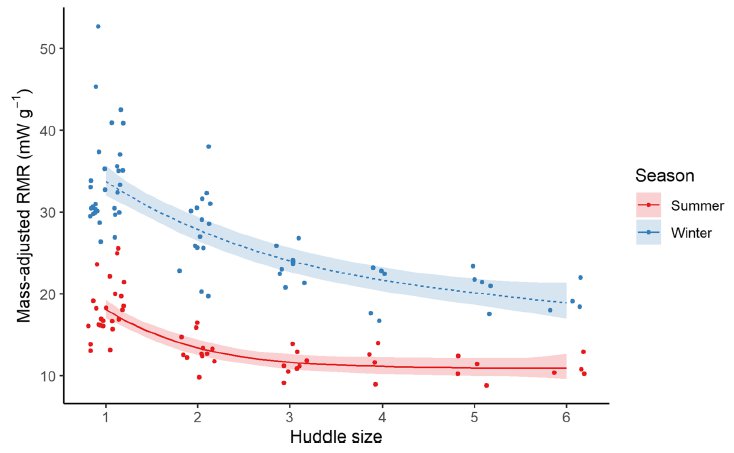This time Leszek Rychlik and co-authors from Portugal (University of Lisbon) published in Behavioral Ecology and Sociobiology the paper on social thermoregulation in Crocidura russula. They analyzed the behavior and physiology of shrew groups from winter (acclimated to 14 °C) and summer (acclimated to 24 °C). All group mates were frequently found huddling in the same shelter, regardless of acclimation temperature. However, resting metabolic rate decreased in winter shrews and remained constant in summer shrews in huddles with three or more individuals. Body temperature was also significantly lower and more varied in winter shrews. Moreover, winter shrews used less torpor and significantly increased food intake and their body mass. The results suggest that temperature had a small influence on huddling behavior but a large one on metabolism, body temperature and food intake in shrews interacting socially. Hence, social thermoregulation provides some benefits to C. russula besides energy savings.
The paper is available at: https://link.springer.com/article/10.1007/s00265-021-03072-7

